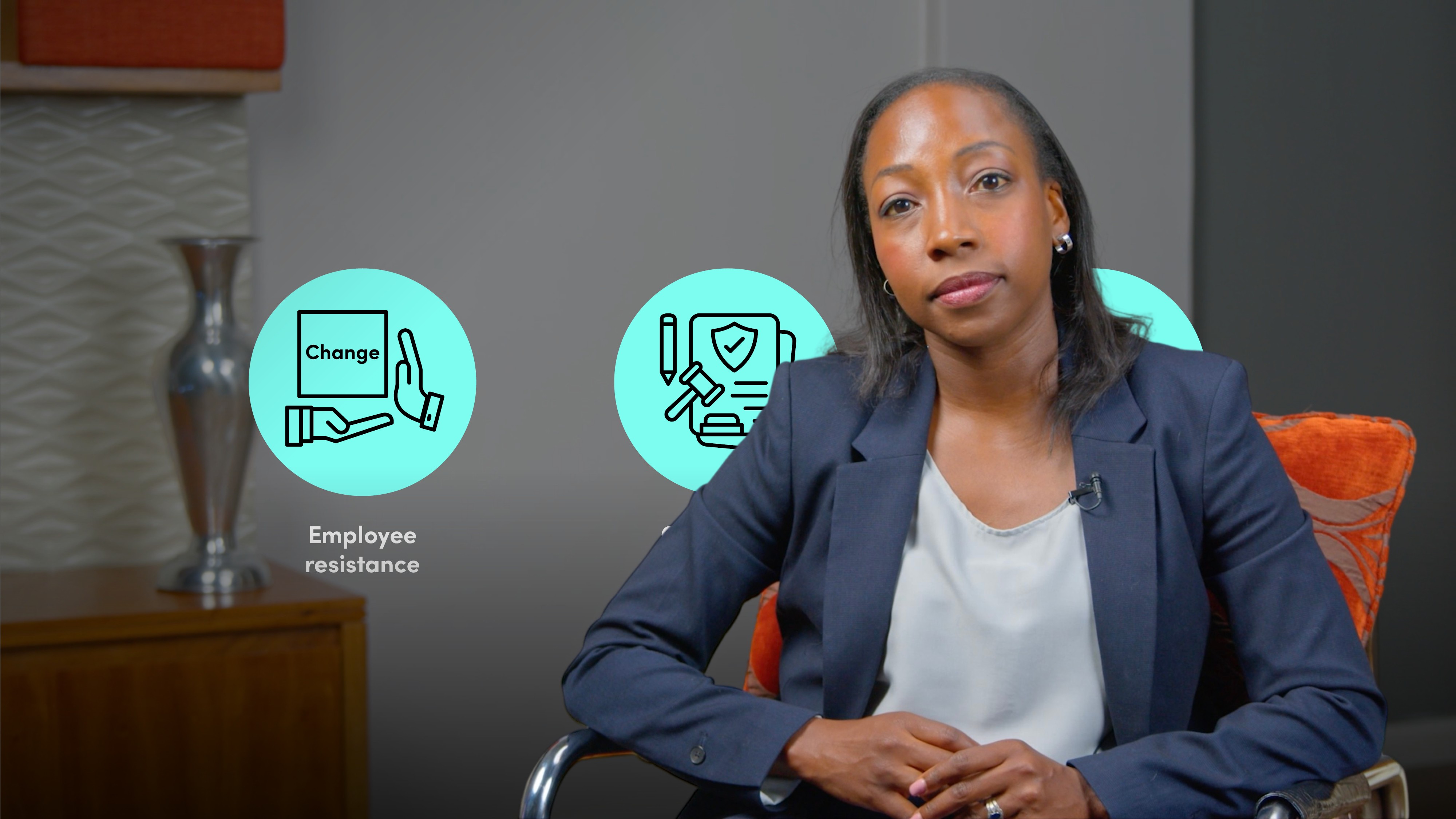
How Social Impact is Influenced by 'Work'

Karimi Fondaumiere
Director and co-founder
In this video, we explore the "Work" aspect of social change. In doing so, we will learn how to build a socially responsible organisational culture. We will also discuss potential challenges such as employee resistance and compliance issues, and the importance of adaptability in maintaining relevance. Ultimately, we will learn how to foster a culture of purpose and impact.
In this video, we explore the "Work" aspect of social change. In doing so, we will learn how to build a socially responsible organisational culture. We will also discuss potential challenges such as employee resistance and compliance issues, and the importance of adaptability in maintaining relevance. Ultimately, we will learn how to foster a culture of purpose and impact.
Subscribe to watch
Access this and all of the content on our platform by signing up for a 7-day free trial.

How Social Impact is Influenced by 'Work'
7 mins 41 secs
Key learning objectives:
Identify the elements needed to foster social change within your organisation
Understand how creating a socially responsible organisational culture requires a deliberate alignment of core values
Identify the potential challenges and risks associated with implementing social change on an employee level
Overview:
The "Work" aspect of social change, involves understanding how businesses can successfully integrate social responsibility into their business practices. True social change requires a holistic approach involving self-awareness, collaboration, and organisational design. By integrating these elements, organisations can authentically engage with social issues, driving transformative and meaningful change. The journey involves continuous learning and adapting to create a lasting legacy of positive social impact.
Subscribe to watch
Access this and all of the content on our platform by signing up for a 7-day free trial.
- Defining Core Values - Establishing foundational values that reflect inclusivity, respect, and diversity
- Aligning Values with Social Responsibility - Ensuring business decisions and practices align with ethical considerations and societal betterment
- Leadership by Example - Demonstrating commitment to social responsibility through actions and decisions
- Integrating Policies with Social Goals - Embedding ethical considerations into governance structures and decision-making frameworks
- Educating and Training Employees - Implementing programs to educate employees on social responsibility objectives and integrating these discussions into onboarding processes
- Encouraging Employee Participation - Actively encouraging and rewarding employee involvement in social initiatives
- Developing Measurable KPIs - Assessing the impact of social responsibility efforts through regular reporting and promoting accountability
- Establishing Feedback Loops - Continuously improving social responsibility practices based on feedback and changing dynamics.
- Employee Resistance - Employees might resist changes perceived as intrusive or restrictive. Effective communication and involving employees in decision-making can help mitigate this resistance.
- Compliance Challenges - Navigating the legal landscape of social issues requires adherence to various laws and regulations. Staying updated with regulatory changes is crucial for compliance.
- Inconsistent Implementation - Achieving uniformity in implementing social responsibility initiatives across different teams or departments can be challenging. Consistent monitoring and clear guidelines can help ensure uniform implementation.
- Establishing clear communication channels and encouraging open dialogue.
- Promoting cultural awareness and sensitivity through training and resources.
- Cultivating inclusivity by valuing diverse contributions and creating a safe environment for sharing perspectives.
- Leveraging diverse strengths by assigning tasks based on individual expertise and aligning team goals.
- Being adaptable and open to feedback to continuously improve collaborative efforts.
Subscribe to watch
Access this and all of the content on our platform by signing up for a 7-day free trial.

Karimi Fondaumiere
There are no available Videos from "Karimi Fondaumiere"





























